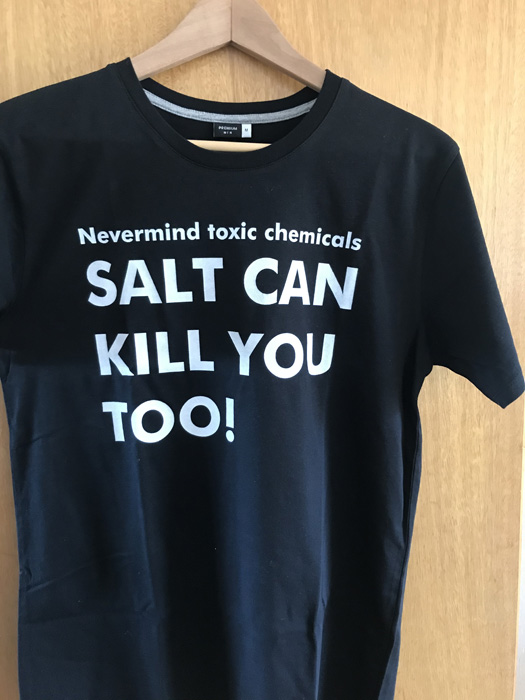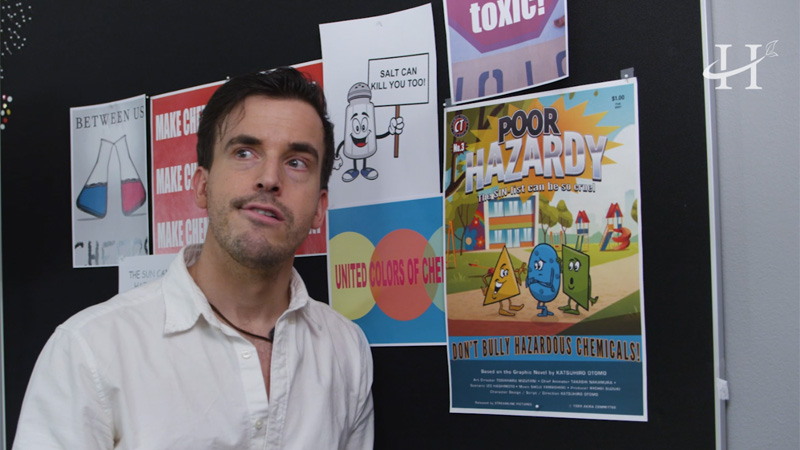Hoogenboezem-Fisher is the name of a made-up PR & lobby firm and the setting of an awareness campaign by NGO ChemSec, released in May 2021.
Hoogenboezem-Fisher’s customers come from the chemical industry, in particular the laggards that refuse to step into the 21st century and take responsibility for the toxic chemicals they produce, going into millions of different consumer products all around the globe.
The arguments are not fictional
The argumentation and logic of Hoogenboezem-Fisher are based on reoccurring experiences that we at ChemSec have had with some (not all) chemical industry representatives throughout the years. Time and time again, we hear that:
“Toxic chemicals are not a problem – it’s all about managing the risk.”
Which can actually be true, but only in very few cases. The problem is that this argument is often touted as the ultimate solution to ALL problems related to toxic chemicals in everyday products:
“A hormone-disrupting chemical in your skin cream? Hey, that’s not a problem in a small dose. It’s all about managing the risk!”
“PFAS in firefighting foam? No problem in such small doses. It’s all about managing the risk!”
Those doses quickly add up and pretty soon, they are no longer small.
Other comments, coming up time and time again in the debate, border on being straight-up nonsense, like:
“Why ban toxic chemicals? Salt can kill you too.”
Or:
“Water can make you drown, but I don’t see ChemSec wanting to ban water!”
Again, true. But the chemicals we are talking about are so-called substances of concern. Chemicals that authorities, scientists and NGOs all over the world are concerned about. We’re not talking about salt, and nonsense comments like that only serves to dumb down the conversation.
Risk management approach has given us a toxic world
The “it’s all about managing the risk” approach is also what has created the current situation: widespread use of hazardous chemicals, even in the most obscure products you can imagine (did you know that there are harmful PFAS chemicals in dental floss and guitar strings?), and a growing body of scientific literature raising great concern about this, due to the negative impact on human health and the environment.
One of the best things that risk management has got going for itself is that the idea as such is applicable – and perfectly legitimate – in many instances.
Risk management. It has a very sensible ring to it. If you speak up at meetings and utter the words “risk management”, there’s a good chance that people will gaze upon you for saying very smart things.
Taking risks on the stock market, for example, is only natural and part of the game. There are a number of areas were considering risk is the smart thing to do. Heck, just stepping out on the street in the morning involves some risk. It’s something we can all relate to, because we make these micro risk assessments every day, and most of the time we end up just fine.
But don’t be fooled! Just because a risk perspective as such is applicable in many instances, doesn’t mean it’s always the smart approach. This is never more true than when it comes to hazardous chemicals. In these cases, something that felt like a smart risk decision 20 years ago, for example PFAS chemicals, all of sudden turns out not to be that smart when you have more data on hand.

We would rather shake hands than point fingers
The motive behind the Hoogenboezem-Fisher campaign is not to single someone out, but rather to make fun of some very outdated industry practices and reasoning. Our hope is that even our “opponents” can smile at some of the arguments that they no doubt recognize – and maybe even used themselves, at some point.
At the same time, the issue of toxic chemicals is very serious.
If regular consumers only knew half of all the stuff that are put into the products we surround ourselves with, and the effects these chemicals might have on human health and the environment, we believe the conversation would be very different. In that sense, parts of the chemical industry, as well as all the brands that don’t care about the chemicals in their products, can consider themselves lucky that this issue is currently not seeing much public scrutiny.
At ChemSec, we believe that this is about to change. We both support and applaud all chemical companies and brands that are already embracing this change and working towards solving the problem.
These companies will always have an ally in ChemSec.





